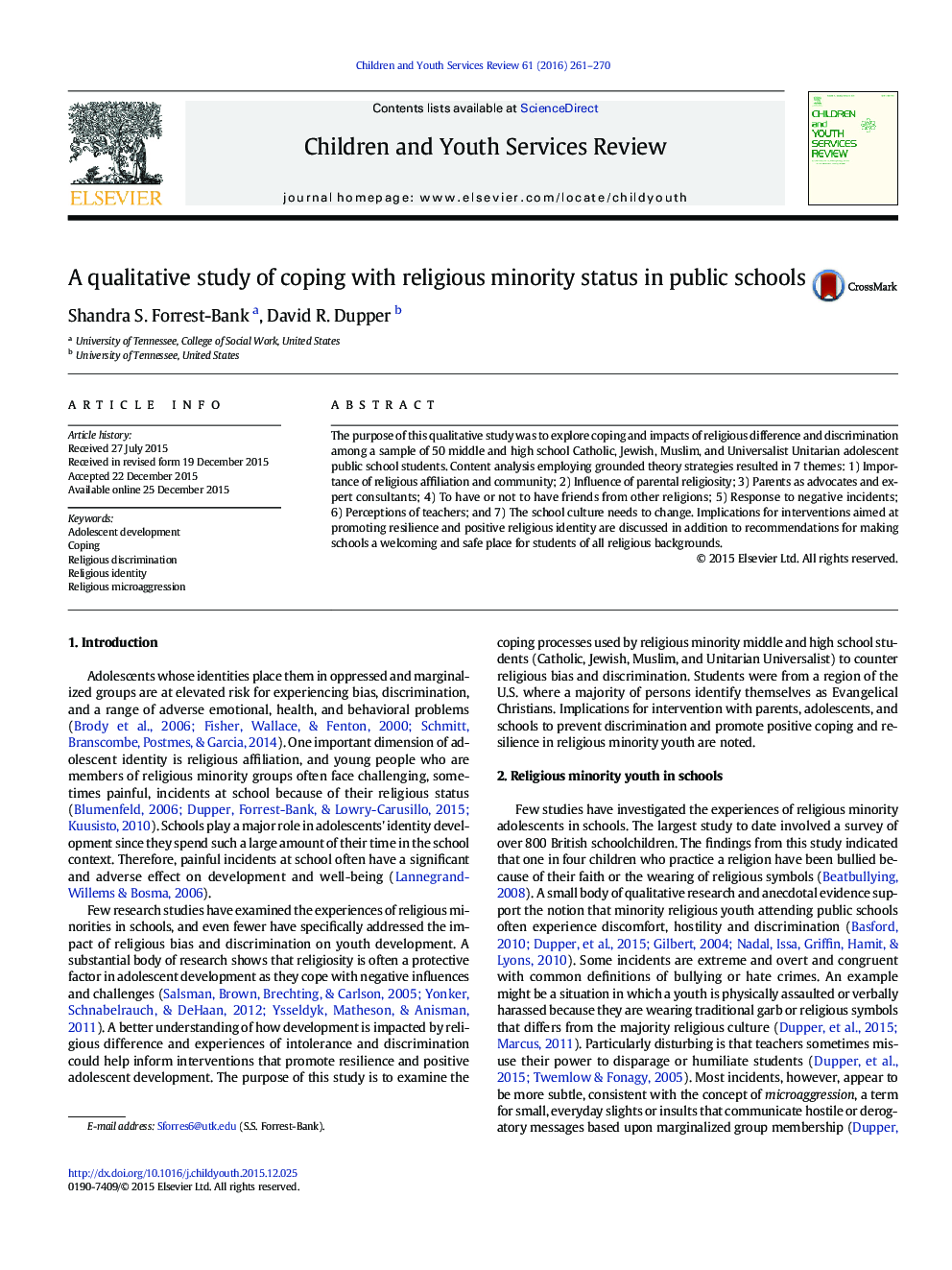| کد مقاله | کد نشریه | سال انتشار | مقاله انگلیسی | نسخه تمام متن |
|---|---|---|---|---|
| 345898 | 617772 | 2016 | 10 صفحه PDF | دانلود رایگان |
• Religious difference is a central issue in the lives and identity development of adolescents.
• Religious minority youth employ coping strategies in response to intolerance and discrimination.
• Religious discrimination may have negative impacts to emotional well-being and religious identity.
• Recommendations include proactive education and advocacy for students to prevent and manage difficult dynamics.
• Schools are urged to develop culture that is welcoming and inclusive for students of all religious backgrounds.
The purpose of this qualitative study was to explore coping and impacts of religious difference and discrimination among a sample of 50 middle and high school Catholic, Jewish, Muslim, and Universalist Unitarian adolescent public school students. Content analysis employing grounded theory strategies resulted in 7 themes: 1) Importance of religious affiliation and community; 2) Influence of parental religiosity; 3) Parents as advocates and expert consultants; 4) To have or not to have friends from other religions; 5) Response to negative incidents; 6) Perceptions of teachers; and 7) The school culture needs to change. Implications for interventions aimed at promoting resilience and positive religious identity are discussed in addition to recommendations for making schools a welcoming and safe place for students of all religious backgrounds.
Journal: Children and Youth Services Review - Volume 61, February 2016, Pages 261–270
